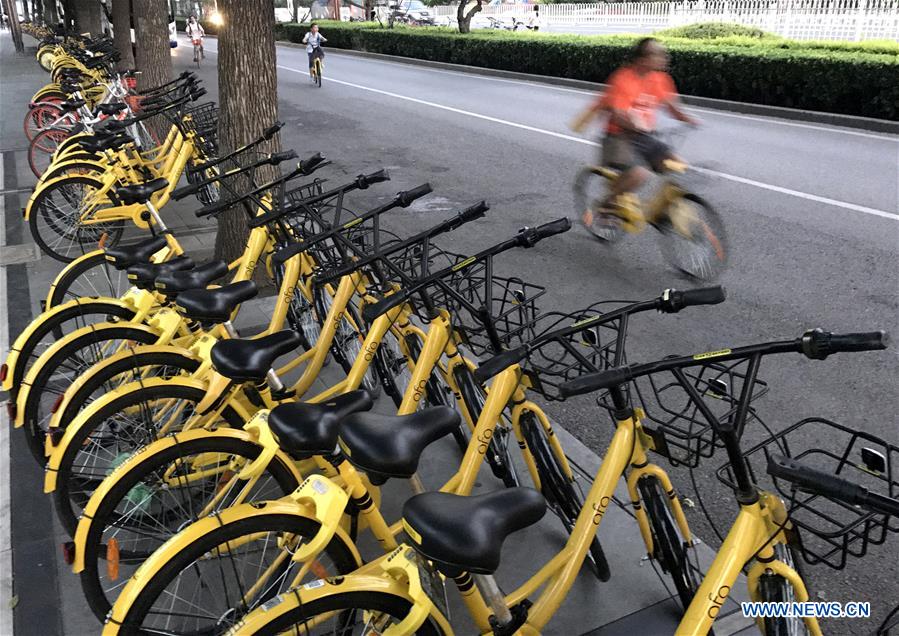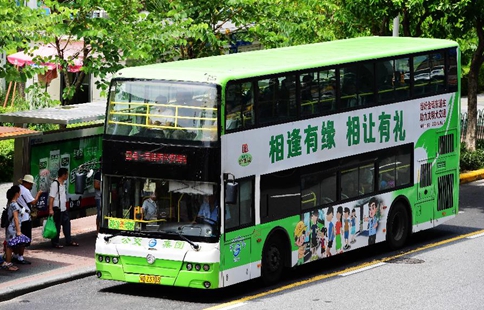
Photo taken by mobile phone shows shared bicycles on a sidewalk in Beijing, capital of China, Aug. 3, 2017. The Chinese government issued guidelines on Thursday to regulate bike-sharing services, which have boomed nationwide but led to urban management challenges. (Xinhua/Luo Xiaoguang)
BEIJING, Aug. 3 (Xinhua) -- The colorful seas of haphazardly parked bicycles outside subway entrances and along sidewalks in Chinese cities will hopefully disappear soon thanks to new guidelines.
The Chinese government issued guidelines on Thursday to regulate bike-sharing services, which have boomed nationwide but led to urban management challenges such as congested city sidewalks.
Users of bike-sharing services in China should register under their real names, according to the guidelines released by the Ministry of Transport (MOT) and nine other government departments.
The MOT released a draft version of the guidelines in May to solicit public opinion, receiving 780 suggestions.
Due to safety concerns, bike-sharing providers are banned from offering services to children under the age of 12 and are not encouraged to offer electric bike services.
By scanning a bike's QR code with a smartphone, riders can pedal away for as little as 0.5 yuan (7.4 U.S. cents ). The services allow users to pick up or drop off a bike almost anywhere.
China now has around 70 bike-sharing brands, which have put more than 16 million bicycles on streets nationwide and attracted over 130 million users, according to the MOT.
Shared bikes are part of the green urban transport system, and city governments should optimize bike transportation networks to improve convenience and safety for riders, the guidelines said.
Local governments should study specific conditions to ensure rational allocation of bicycles and avoid excess supply in some areas, the guidelines said.
Market players such as Mobike and Ofo have been speeding up expansion, both domestically and abroad, while updating their bikes and increasing output to grab a bigger market share.
A survey from the Shanghai Bicycle Association showed that about 500,000 bikes are sufficient to meet daily use for Shanghai, but the city is home to over one million shared bikes operated by 11 enterprises.
According to Zhang Siding, cofounder of Ofo, his company's bike supply is already adjusted dynamically based on changes in demand and frequency of use.
Bike-sharing operators are encouraged to set up electronic fences to guide users to park in an orderly manner and dispose of non-functioning bicycles in a timely fashion.
The guidelines also encourage the companies to offer services without requiring deposits to avoid cash pooling that could lead to illegal funding concerns, according to Wu Chungeng, spokesperson with the MOT.
Many bike-sharing apps require users to deposit between 99 and 299 yuan before using the service. Some pioneers have introduced discounted or free deposits for users based on their credit performance.
The introduction of electronic fences and credit scoring will help encourage users to behave in line with regulations and improve management efficiency, said Xing Lin, director of government affairs with Mobike.















